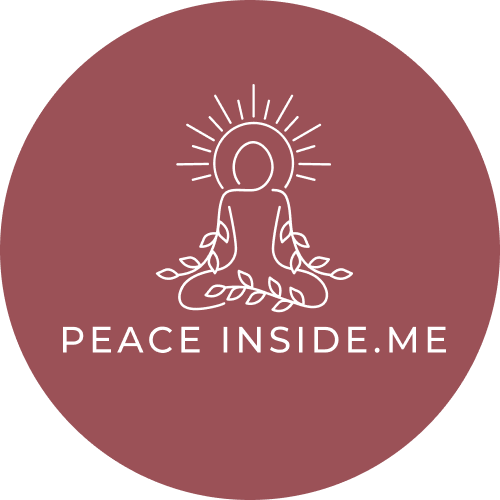peaceinside.me
Why Social Media Detox Supports Mental Clarity in Sobriety
Please note, this post is partially or fully sponsored and may contain affiliate links.
In today’s digital age, social media is everywhere. It connects us, entertains us, and even educates us. But for individuals on a sobriety journey, constant exposure to social media can become a hidden trigger that disrupts emotional peace and mental clarity. A social media detox—stepping away from platforms like Instagram, Facebook, or TikTok—can offer powerful support in building a clearer, calmer, and more focused mind during recovery.
Let’s explore why taking a break from the scroll can help you stay grounded and mentally strong in your sobriety.
Let’s explore why taking a break from the scroll can help you stay grounded and mentally strong in your sobriety.

The Link Between Social Media and Mental Overload
Social media delivers a steady stream of content. Whether it's perfectly filtered lives, debates, or emotional videos, your brain receives thousands of micro-stimuli every time you scroll. For someone in recovery, this sensory overload can lead to anxiety, insecurity, and even relapse thoughts.
According to a 2022 study published in Cyberpsychology, Behavior, and Social Networking, individuals who spent more than three hours daily on social media were significantly more likely to experience poor mental health, including symptoms of depression and anxiety.
Social media drains mental energy by:
Why Sobriety Needs Mental Clarity
Recovery isn't just about staying away from substances—it's also about rebuilding your inner world. Mental clarity is essential for:
Social media delivers a steady stream of content. Whether it's perfectly filtered lives, debates, or emotional videos, your brain receives thousands of micro-stimuli every time you scroll. For someone in recovery, this sensory overload can lead to anxiety, insecurity, and even relapse thoughts.
According to a 2022 study published in Cyberpsychology, Behavior, and Social Networking, individuals who spent more than three hours daily on social media were significantly more likely to experience poor mental health, including symptoms of depression and anxiety.
Social media drains mental energy by:
- Promoting comparison with others
- Exposing you to substance-related content
- Reducing time for healthy offline habits
- Encouraging distractions from emotional work
Why Sobriety Needs Mental Clarity
Recovery isn't just about staying away from substances—it's also about rebuilding your inner world. Mental clarity is essential for:
- Making mindful decisions
- Processing emotional triggers
- Setting healthy boundaries
- Reconnecting with purpose

How a Social Media Detox Helps in Recovery
1. Reduces Emotional Triggers
Social media algorithms often show you content based on past behavior. If you once followed party influencers or accounts that romanticize drinking or drug use, your feed may bring up unwanted memories or cravings. Even innocent posts from friends enjoying a drink can activate emotional triggers.
A detox helps break this cycle. By stepping back, you create space to regulate emotions without external noise.
2. Boosts Self-Awareness
Constant notifications interrupt your ability to reflect. In early sobriety, self-awareness is a key skill. You need time to tune into how your body feels, how your emotions rise and fall, and what you really need moment by moment.
Without the digital clutter, your brain begins to recalibrate. You start noticing your inner landscape more clearly, which makes it easier to respond with self-compassion rather than react impulsively.
3. Encourages Real Connections
True healing happens in relationships—real, face-to-face ones. Social media can give the illusion of connection, but research shows it often leaves users feeling lonelier. A 2021 survey from the Journal of Social and Clinical Psychology found that people who limited social media to under 30 minutes a day reported significantly better social well-being and reduced feelings of isolation.
In recovery, this matters. Real-life community, whether through support groups, therapy, or friendships, provides emotional nourishment that likes and emojis simply can't offer.
4. Improves Sleep and Focus
Excess screen time, especially before bed, disrupts your circadian rhythm. Blue light from devices suppresses melatonin, a hormone that promotes sleep. And poor sleep can lead to irritability, poor decision-making, and higher relapse risk.
When you detox from social media, you naturally reduce screen exposure. This leads to better sleep quality and improved focus—two pillars of mental resilience in sobriety.
1. Reduces Emotional Triggers
Social media algorithms often show you content based on past behavior. If you once followed party influencers or accounts that romanticize drinking or drug use, your feed may bring up unwanted memories or cravings. Even innocent posts from friends enjoying a drink can activate emotional triggers.
A detox helps break this cycle. By stepping back, you create space to regulate emotions without external noise.
2. Boosts Self-Awareness
Constant notifications interrupt your ability to reflect. In early sobriety, self-awareness is a key skill. You need time to tune into how your body feels, how your emotions rise and fall, and what you really need moment by moment.
Without the digital clutter, your brain begins to recalibrate. You start noticing your inner landscape more clearly, which makes it easier to respond with self-compassion rather than react impulsively.
3. Encourages Real Connections
True healing happens in relationships—real, face-to-face ones. Social media can give the illusion of connection, but research shows it often leaves users feeling lonelier. A 2021 survey from the Journal of Social and Clinical Psychology found that people who limited social media to under 30 minutes a day reported significantly better social well-being and reduced feelings of isolation.
In recovery, this matters. Real-life community, whether through support groups, therapy, or friendships, provides emotional nourishment that likes and emojis simply can't offer.
4. Improves Sleep and Focus
Excess screen time, especially before bed, disrupts your circadian rhythm. Blue light from devices suppresses melatonin, a hormone that promotes sleep. And poor sleep can lead to irritability, poor decision-making, and higher relapse risk.
When you detox from social media, you naturally reduce screen exposure. This leads to better sleep quality and improved focus—two pillars of mental resilience in sobriety.

Practical Tips for a Social Media Detox in Sobriety
Detoxing doesn’t mean you must quit forever. It simply means creating mindful boundaries. Here are steps to start:
1. Set a Clear Goal
Decide why you're detoxing. Is it to reduce anxiety? Avoid triggers? Reclaim time? Write it down and remind yourself often.
2. Choose a Timeframe
Try a 7-day or 30-day break. Even a weekend can bring noticeable mental shifts.
3. Delete Apps or Log Out
Make access harder. Delete the apps from your phone or log out to add a moment of mindfulness before re-entering.
4. Fill the Time with Nourishing Alternatives
Replace scrolling with journaling, walks, meditation, or calling a friend. Create a feel-good list of offline activities.
5. Notice the Changes
Track your mood, energy, and clarity throughout the detox. Many people report feeling calmer, more productive, and more present.
What to Expect Emotionally During a Detox
Just like detoxing from substances, detoxing from social media may come with withdrawal symptoms:
Detoxing doesn’t mean you must quit forever. It simply means creating mindful boundaries. Here are steps to start:
1. Set a Clear Goal
Decide why you're detoxing. Is it to reduce anxiety? Avoid triggers? Reclaim time? Write it down and remind yourself often.
2. Choose a Timeframe
Try a 7-day or 30-day break. Even a weekend can bring noticeable mental shifts.
3. Delete Apps or Log Out
Make access harder. Delete the apps from your phone or log out to add a moment of mindfulness before re-entering.
4. Fill the Time with Nourishing Alternatives
Replace scrolling with journaling, walks, meditation, or calling a friend. Create a feel-good list of offline activities.
5. Notice the Changes
Track your mood, energy, and clarity throughout the detox. Many people report feeling calmer, more productive, and more present.
What to Expect Emotionally During a Detox
Just like detoxing from substances, detoxing from social media may come with withdrawal symptoms:
- Restlessness or boredom
- FOMO (fear of missing out)
- Urge to pick up your phone frequently

Long-Term Gains of Social Media Breaks
A short detox can lead to lasting transformation:
✅ Better concentration and task completion
✅ Improved mood and reduced anxiety
✅ Increased time for hobbies and self-care
✅ More meaningful relationships
✅ Stronger sense of self-worth
Over time, many in recovery choose to return to social media—but with clearer intentions and healthier boundaries.
A short detox can lead to lasting transformation:
✅ Better concentration and task completion
✅ Improved mood and reduced anxiety
✅ Increased time for hobbies and self-care
✅ More meaningful relationships
✅ Stronger sense of self-worth
Over time, many in recovery choose to return to social media—but with clearer intentions and healthier boundaries.
Final Thoughts
In sobriety, your mind becomes your most valuable ally. It guides your decisions, manages your emotions, and helps you stay grounded in the present. But if social media clouds that mind with noise, comparison, or triggers, it’s okay to pause.
A social media detox doesn’t just benefit your digital life—it supports your healing, one quiet, intentional moment at a time. Whether it’s for a few days or a few weeks, the break can give your brain—and your heart—the breathing room it needs to thrive.
You deserve clarity, peace, and real connection. And sometimes, all it takes is logging out to look within.
Sources:
In sobriety, your mind becomes your most valuable ally. It guides your decisions, manages your emotions, and helps you stay grounded in the present. But if social media clouds that mind with noise, comparison, or triggers, it’s okay to pause.
A social media detox doesn’t just benefit your digital life—it supports your healing, one quiet, intentional moment at a time. Whether it’s for a few days or a few weeks, the break can give your brain—and your heart—the breathing room it needs to thrive.
You deserve clarity, peace, and real connection. And sometimes, all it takes is logging out to look within.
Sources:
- Lembke, A. (2021). Dopamine Nation: Finding Balance in the Age of Indulgence. Dutton.
- Hunt, M.G., Marx, R., Lipson, C., & Young, J. (2021). No More FOMO: Limiting Social Media Decreases Loneliness and Depression. Journal of Social and Clinical Psychology.
- American Psychological Association (2022). Social Media Use and Mental Health.
~
See a typo or inaccuracy? Let us know so we can fix it!
Sharing is caring ❤️
~
~
~
BECOME A PEACE INSIDER
Sign up for peaceinside.me information, inspiration, and specials.



